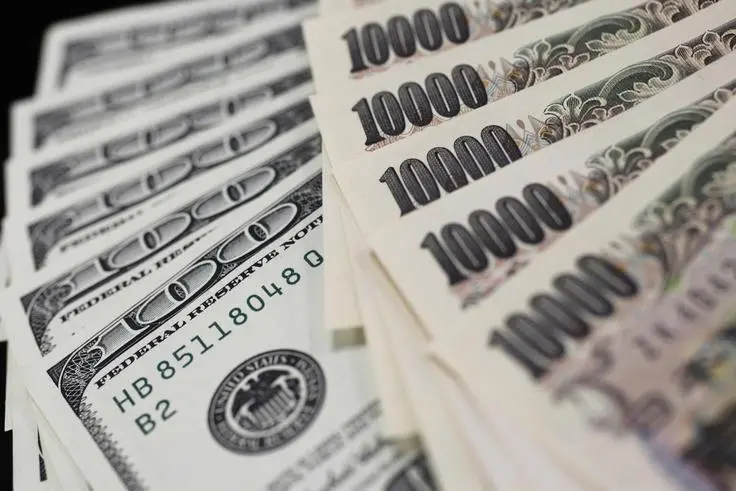PHOTO
SINGAPORE: The yen was poised for its strongest week in nearly three months on Friday as traders unwound their long-held bets against the frail currency ahead of crucial U.S. inflation data that could cement rate cut expectations.
The yen has dominated the currency markets this month, surging to a near three-month high of 151.945 per dollar on Thursday after starting the month languishing at 38-year lows of 161.96 per dollar.
The large move follows suspected interventions from Tokyo in early July that wrong-footed traders and led to unwinding of profitable carry trades, in which traders borrow the yen at low rates to invest in dollar-priced assets for higher returns.
On Friday, the yen was last at 153.625, set for a 2.3% rise for the week, its biggest weekly gain since late April-early May as a global stocks rout also drove investors towards safe assets, including yen.
"I think the speed of the yen rally means we are probably due some consolidation pretty soon," said James Athey, fixed income portfolio manager at Marlborough Investment Management.
"But ultimately with the shine coming off risk assets and data and Fedspeak suggesting cuts are coming I still feel the yen has further to appreciate."
Investor attention on Friday will be on the U.S. personal consumption expenditure data - the Federal Reserve's favoured measure of inflation. The PCE data is expected to come in at 0.1% on a monthly basis.
The Fed meets next week and is expected to stand pat on rates this time but markets are fully pricing in a rate cut in September. Traders also anticipate 66 basis points of easing this year.
The Bank of Japan on the other hand may raise rates next week, with markets pricing in a 64% chance of a 10 bps hike.
Data on Friday showed core inflation in Japan's capital accelerated for a third straight month in July, keeping alive expectations of a near-term interest rate hike.
The surge in yen though may allow the central bank to take its time, analysts say.
"The pressure on the Bank of Japan to tighten policy has reduced," said Ben Bennett, Asia-Pacific investment strategist at Legal and General Investment Management.
"But they're still expected to announce details of their balance sheet reduction, which is some form of quantitative tightening."
The dollar index, which measures the U.S. unit versus six rivals, was little changed at 104.35. The euro was a tad stronger at $1.0853 but is down 0.35% for the week, its steepest weekly decline since early June.
The dollar found its footing after data on Thursday showed the world's largest economy expanded faster than expected and inflation slowed in the second quarter.
The Australian dollar was 0.15% higher at $0.65475, just a shade above the near three-month low it touched on Thursday. The souring risk sentiment this week has weighed heavily on the Aussie and the New Zealand dollar.
The Aussie is down 2% for the week, its worst weekly performance since November 2023. The kiwi was last at $0.5888, on course for 2% decline in the week.
(Reporting by Ankur Banerjee in Singapore; Editing by Sam Holmes)





















